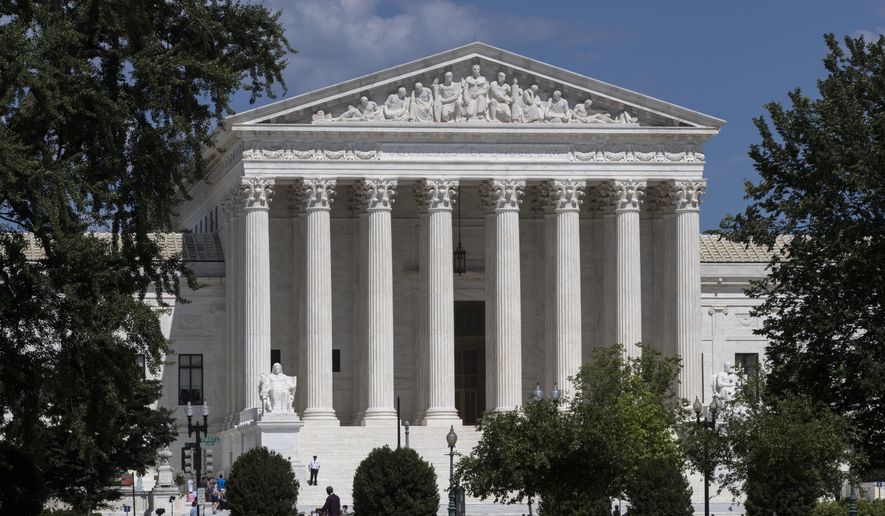The Supreme Court on Tuesday questioned the legality of the Consumer Financial Protection Bureau, specifically whether Sen. Elizabeth Warren’s brainchild, created during the Obama administration, can be led by a single director unaccountable to the president.
“Congress has always established these as multimember commissions or agencies,” Justice Brett M. Kavanaugh said about independent agencies during oral arguments.
“It’s really the next president who’s going to face the issue, because the head of this agency will go at least three or four years into the next president’s term, and the next president might have a completely different conception of consumer financial regulatory issues, yet will be able to do nothing about it,” he added.
The Trump administration argues the president should be able to terminate an agency head at will, not only for cause.
The current director cannot be replaced without an underlying reason until 2023 under the law that created the bureau.
Tuesday’s legal arguments focused on the separation of powers and whether the CFPB runs afoul of the Constitution because its director is largely shielded from being fired.
Created in 2010 by Congress through the Dodd-Frank Wall Street Reform and Consumer Protection Act in response to the 2008 financial crisis, the CFPB aims to tighten controls on the financial sector including banks, securities firms, mortgage lenders and credit unions. It enforces nearly 20 consumer protection laws.
Opponents of the agency argue an independent institution exercising executive authority runs afoul of the three branches of government outlined by the Constitution, saying it infringes on the civil liberties of the people.
Solicitor General Noel Francisco told the justices that without any limitations on a single director, Congress could overreach and protect other agency heads.
“Congress could presumably impose for-cause removal restrictions on almost the entire Cabinet, from Treasury to the EPA,” Mr. Francisco argued.
Douglas Letter, who argued on behalf of the House, pushed back, saying there is no history of Congress looking to make that type of change.
He pointed out that the Federal Reserve, similarly, has seven members with 14-year terms.
“A president who serves a four-year term is, therefore, very likely to have almost no influence over the Fed. They won’t — I’ve not — I’m not a good mathematician, but I don’t think that means that they get to come anywhere close to appointing a majority of the Fed members. So this is a problem that you have already decided to — to recognize,” Mr. Letter argued, defending the law.
The liberal wing of the court appeared unwilling to undo Congress’s work, with Justice Elena Kagan saying there are other considerations to weigh when a president decides to remove an individual.
“Removal is like a nuclear bomb. There are all kinds of things that actually figure in how much control a president has over an individual that have nothing to do with removal. Why is it that we’ve picked this one?” she questioned.
Seila Law, a firm that represents consumers, had been subject to a civil investigation by the CFPB but refused to turn over documents, arguing the agency was illegal based on its structure.
A district court sided with the CFPB in upholding its demand for the documents. The 9th U.S. Circuit Court of Appeals agreed, citing a ruling from the federal appeals court in Washington upholding the legality of the bureau.
After several legal challenges to the agency, the Supreme Court decided to hear the law firm’s appeal. A judgment is expected by the end of June.
• Alex Swoyer can be reached at aswoyer@washingtontimes.com.




Please read our comment policy before commenting.